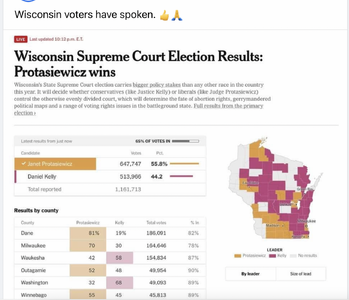- Joined
- Dec 16, 2017
- Messages
- 1,694
@missy This is SO effed up. Reading about the struggles and heartaches of women attempting to have control over their bodies and health makes me sick. The attacks on women are mind-numbing. And now we've got that dipwad so proud of her teen son making her a grandma at 36 because being a teen mom is awesome and shows you value life! 










300x240.png)